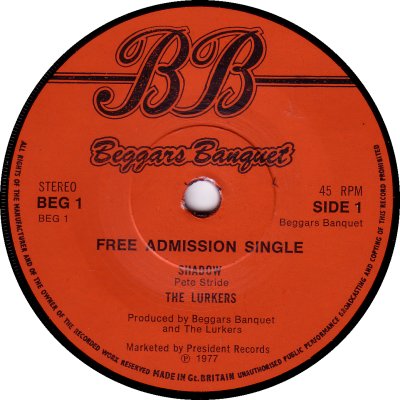
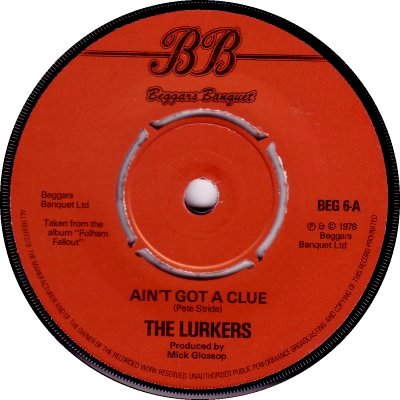
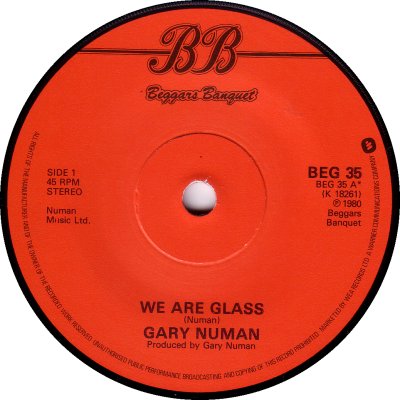
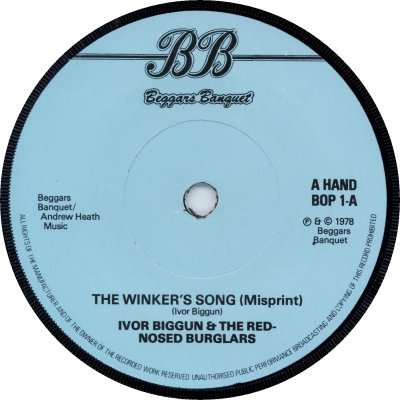
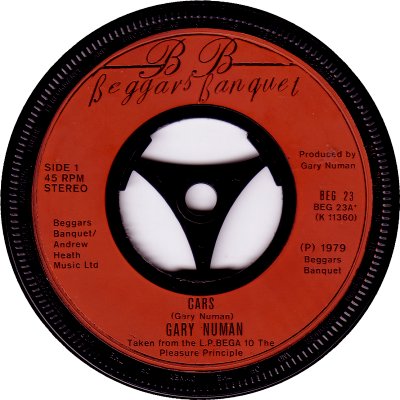
Founded and directed by Martin Mills and Nick Austin, Beggars Banquet began life first as a mobile discotheque and then as a record shop; it also acted as a concert promoter. Customer demand led it to develop an interest in the nascent Punk movement, and it started promoting Punk gigs. Punk band The Lurkers used to rehearse under the company's Fulham shop; it was in response to a failure to interest record companies in the group that, in 1977, Beggars Banquet set up their own label. It came under the President umbrella at first (1), but a pressing and distribution deal was signed with Island in October 1977 - the actual pressing appears to have been done by EMI, as it was for most Island singles at the time (2). At the start of 1978 Island became one of EMI's licensed labels; Beggars Banquet appears to have been handled by EMI for a while, but in the Autumn of that year it signed an agreement with WEA who were able to offer some much-needed financial help. The label design remained basically unchanged but the Warner 'W' logo was inserted into the perimeter text from January 1979 (3). The deal had an 'eccentricity clause' according to 'Billboard' (6th October 1979): Beggars Banquet could release things without WEA's approval but WEA didn't have to promote them. From the start numbering was in the BEG-0s, though there was a short BOP-0 series which had pale grey-blue labels instead of the usual red ones (4); for some reason 'Desire Me' by The Doll (BEG-11) also had this kind of label. The occasional injection moulded label was the result of custom pressings of popular singles by Phonodisc (5). After tickling the charts with singles by the Lurkers, the Doll and Ivor Biggun the company hit paydirt in 1979 when its eighteenth single, Tubeway Army's 'Are Friends Electric' went to No.1 (with the help of a then-novel picture disc). A stream of hits by Gary Numan followed. In the '80s and '90s the label's policy of spotting new trends in music and encouraging them enabled it to grow and to flourish; whereas many independents from the '70s and '80s came and went, Beggars Banquet came and stayed.
(http://www.beggars.com)
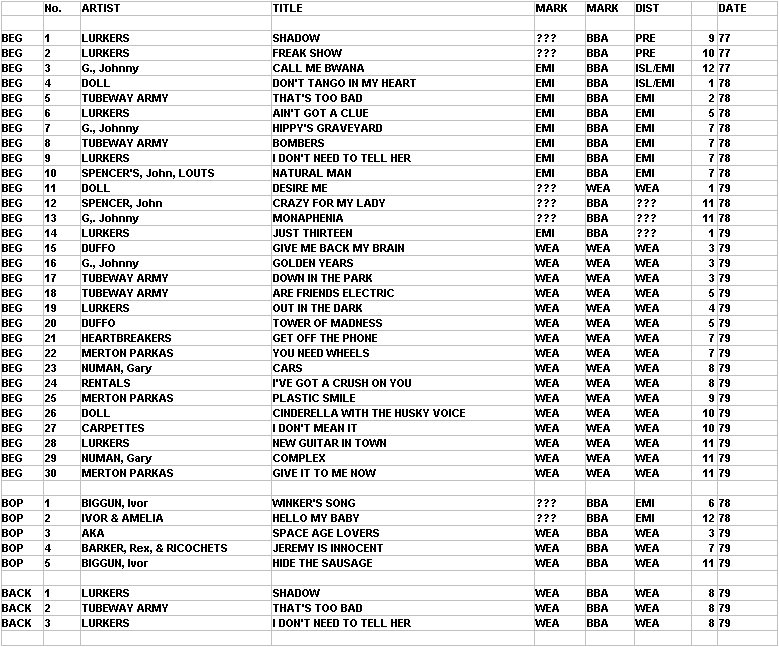


Copyright 2006 Robert Lyons.

